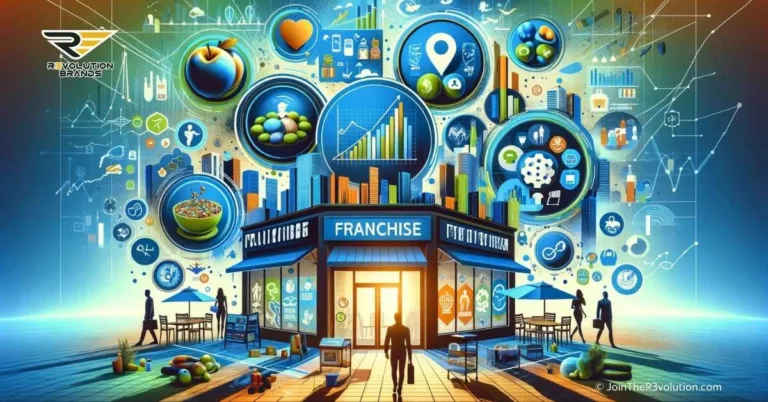In the rapidly evolving business landscape, staying ahead of the competition is crucial for success. With the increasing advancements in smart technology, businesses have a unique opportunity to harness these innovations for a competitive edge in 2024.
In this blog post, we will explore key smart technologies that can give businesses an advantage, such as AI and machine learning, and the role of smart technology in personalizing customer experiences.
By strategically integrating these technologies, businesses can position themselves at the forefront of innovation and drive growth in the coming year.
Identifying Key Smart Technologies for Competitive Advantage in 2024
To gain a competitive edge in 2024, businesses need to identify the smart technologies that will shape their industries and drive success.
Here are a few key technologies that are expected to play a significant role:
Artificial Intelligence (AI) and Machine Learning
AI and machine learning are poised to revolutionize the business landscape in 2024.
By leveraging these technologies, businesses can automate processes, analyze vast amounts of data, and uncover valuable insights. AI-powered algorithms can improve decision-making, optimize operations, and enhance overall efficiency.
For example, businesses can use AI-powered chatbots to provide instant customer support, reducing response times and improving customer satisfaction. Machine learning algorithms can also predict customer preferences and behaviors, enabling businesses to personalize their offerings.
Internet of Things (IoT)
The Internet of Things (IoT) is another key smart technology that can provide a competitive advantage. IoT enables the connection and communication between physical devices, collecting real-time data and enabling remote management.
Businesses can leverage IoT to monitor equipment performance, automate inventory management, and optimize resource allocation.
For instance, in the manufacturing industry, IoT sensors can provide insights into machine performance and predict maintenance needs, minimizing downtime and maximizing efficiency.
Big Data Analytics
In the era of big data, businesses that can analyze and derive insights from the vast amount of information available will have a significant advantage. Big data analytics allows businesses to extract valuable insights, understand customer behavior, and make informed decisions.
By analyzing data from various sources, businesses can identify trends, patterns, and customer preferences, enabling them to tailor their strategies and offerings accordingly.
Additionally, big data analytics can provide a competitive advantage by identifying market opportunities and predicting future trends.
Cloud Computing
Cloud computing has become an essential component of modern business strategies. Cloud-based solutions offer scalability, flexibility, and cost savings, enabling businesses to access and process data from anywhere.
Cloud computing also facilitates collaboration and knowledge sharing, as teams can work on shared documents and projects in real time.
By leveraging cloud computing, businesses can quickly adapt to market changes, scale their operations, and access powerful tools and applications without significant upfront investments.
Integrating AI and Machine Learning into Everyday Business Practices
The integration of AI and machine learning into everyday business practices can unlock countless opportunities for growth and innovation.
Here are some key areas where businesses can leverage AI and machine learning for a competitive advantage:
Personalized Marketing and Customer Experiences

AI and machine learning enable businesses to personalize marketing efforts and create tailored customer experiences.
By analyzing customer data, businesses can develop a deeper understanding of individual preferences and behaviors. This allows them to deliver personalized recommendations, targeted advertisements, and customized promotions.
For example, an e-commerce business can use machine learning algorithms to recommend products based on a customer’s browsing and purchase history, increasing the likelihood of conversions.
Predictive Analytics for Demand Forecasting
AI and machine learning algorithms can analyze historical data to predict future trends and demand patterns.
By integrating predictive analytics into their operations, businesses can optimize inventory management, ensure adequate stock levels, and minimize wastage. This helps businesses stay ahead of changing customer demands and improve overall operational efficiency.
For instance, a retail business can use machine learning algorithms to forecast demand for specific products during different seasons, ensuring timely restocking and avoiding stockouts.
Automated Decision-Making and Process Optimization
AI and machine learning can automate decision-making processes, freeing up valuable employee time and improving operational efficiency.
Businesses can leverage AI algorithms to automate routine tasks, such as data entry, document processing, and customer support. This allows employees to focus on more strategic and value-added activities.
For example, a customer service center can use AI-powered chatbots to handle simple customer queries, reducing response times and improving customer satisfaction.
Enhanced Cybersecurity
AI and machine learning can be powerful tools in safeguarding businesses against cyber threats.
By analyzing patterns and anomalies in network traffic and behavior, AI algorithms can detect and respond to potential security breaches in real time. Machine learning algorithms can also continuously learn and adapt to new threats, improving the overall cybersecurity posture of businesses.
Incorporating AI-based cybersecurity solutions can provide businesses with a competitive advantage by minimizing the risk of data breaches and enhancing customer trust.
Harnessing Smart Technology
Integrating AI and machine learning into everyday business practices can provide a significant competitive advantage in 2024.
From personalized marketing and customer experiences to demand forecasting and process optimization, businesses can leverage these technologies to improve efficiency, make data-driven decisions, and enhance cybersecurity.
By strategically integrating smart technologies into their operations, businesses can position themselves as innovative market leaders, driving growth and staying ahead of the competition in 2024 and beyond.





